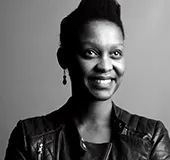
The Fourth Industrial Revolution (4IR) is, by now, well established in our lexicon. As a society, we now have the understanding that technology is moving in such a way that we will no longer be able to easily differentiate between the digital, physical and biological worlds. Not only how we do things is changing but how we live and what we do for work are also fundamentally changing.
Businesses, for instance, are reforming how they operate with interventions like Robotic Process Automation (RPA) being only the beginning of these reforms. RPA allows Artificial Intelligence (AI) to act as a human would when executing repetitive tasks and is already being implemented at a large scale. A typical example of it is in the financial sector where operations have been wholly transformed. Instead of a human reviewing trades, a machine now executes these tasks with higher accuracy and a higher rate of compliance. RPA allows companies to achieve the same tasks quicker (robots do not need to go home and sleep), cheaper (the technology is becoming cheaper every year) and with higher accuracy (humans make more mistakes than machines). Top management consulting firms implementing this technology agree on estimates that the savings for RPA will reach levels as high as 80% savings. What all this means is that workers will need to find something else to do and RPA is only one of the areas that is making this search for worker relevance necessary.
Job creation may wholly change the skill sets that are needed and those new jobs may not be taken up by those who have been displaced from the old jobs.
While all of this sounds like a great advancement and is touted as an opportunity to free up human time to focus on higher value tasks; we cannot forget that the transition to new jobs created through such innovations does not simply or necessarily happen. Job creation may wholly change the skill sets that are needed and those new jobs may not be taken up by those who have been displaced from the old jobs.
A World Economic Forum and A.T. Kearney report titled: “Readiness for the Future of Production 2018” measures country readiness for the 4IR. This report assesses the current structures and drivers of production in each country and finds that Africa does not fare very well, consistently scoring “Nascent” meaning these countries are starting from a limited base of production and are at risk of missing out on the benefits of 4IR in the future. If things remain as they are, Africans will be the worst hit by 4IR, unable to produce at optimal levels and therefore create jobs in the new economy.
While there has been a global response to 4IR, this response varies by country. Some nations are setting up funds to drive innovation, others are focusing on education to ensure that the necessary skill sets of the future are fostered, and all are grappling with how to craft laws that govern a new era of technological intervention in human life.
In Germany for example, a publicly backed Industries 4.0 provides a platform that involves various government departments focusing on digital innovation and transforming business models for 4IR. In Spain, Industria Conectada 4.0 has several lines of intervention, including developing the right competencies through academia and training. 4IR related interventions exist in in other parts of the world as well, including the Made in India initiative, Smart Nation in Singapore and the Industrial Internet Consortium United States.
Africa, once again, lags behind with an overall sluggish response. While the Africa Development Bank is conducting studies on the impact of 4IR on jobs, this intervention does not tackle or develop strategies to increase production or employment. The South African Government in February of 2018 announced an intention to form a Digital Industrial Revolution Commission to tackle 4IR in a State of the Nation address given by the then newly appointed President Cyril Ramaphosa. While Nigeria and Kenya, like the majority of other African nations, have not formalised any programs or platforms to date. Simply, African millennials, who will experience the impacts of 4IR in the coming decades currently have few publicly backed and large-scale interventions that will support rapid skills development or create the kind of environment needed to leapfrog ahead and build industrial hubs that they will benefit from.
While the Africa Development Bank is conducting studies on the impact of 4IR on jobs, this intervention does not tackle or develop strategies to increase production or employment.
According to Alex Gray, writing for the World Economic Forum and echoing “The Future of Jobs Report 2016” published by the forum, states that over one third of skills that are considered important in today’s workforce will have change by the time 4IR is in full effect. The report details the top ten skills of the future which include: complex problem solving, critical thinking, creativity, people management, coordinating with others, emotional intelligence, judgement and decision making, service orientation, negotiation and cognitive flexibility. In short, the future demands skills that will help individuals to better interact with other humans, guide technology as well as do what technology cannot yet do: empathise and understand in ways only humans can.
 With heightened engagement, millennials could position themselves to lead the charge in demanding a response to 4IR and using their votes as leverage.
With heightened engagement, millennials could position themselves to lead the charge in demanding a response to 4IR and using their votes as leverage.
Millennials usually take plenty of harsh criticisms. A Simon Sinek lecture for example summarises what the world thinks of this generation. They are perceived to be narcissistic, entitled and unfocused. Millennials lack patience and cannot properly connect with other people, they are constantly distracted by a need to be liked, facilitated by the strong pull of social media. Millennials are obsessed with happiness that is expected with a certain amount of immediacy. If jobs do not satisfy millennials, they are said to simply quit and move on. In short, these traits may not match well with the skills of the future.
With this change in workforce needs, a lethargic response from African governments and an unfavourable perception of the young generation; African millennials need strategies to position themselves in such a way that they are able to take advantage of rather than suffer from the effects of 4IR.
While currently on the backfoot in a number of areas, there are tools that the African millennial have and need to more strategically leverage in order to craft their own response to 4IR. These include: power in numbers, an insatiable drive coupled with a history of innovative solutions and a strong sense of community and connectedness.
First, in Africa youth are well known to be the majority, with some studies citing as much as 60% of the continent’s population being under 35 years old in 2017. This majority can be a very powerful tool. Some of the largest economies across the continent are also some of the most democratic as measured in the EIU Democracy Index. With heightened engagement, millennials could position themselves to lead the charge in demanding a response to 4IR and using their votes as leverage. Recently, in South Africa we have seen the power of the EFF in garnering support from the youth and becoming a legitimate opposition party that has re-shaped the debate on land in the country within a period of 5 years.
Millennials usually take plenty of harsh criticisms.
Second, as Africans we have had to find innovative solutions to problems the rest of the world does not have. “Mobile telephony has been rapidly adopted and used in many innovative ways in Africa, genuinely transforming some of the continent’s economies and enabling social mobility” notes Ronak Gopaldas in a July 2018 opinion piece for Good Governance Africa.
African millennials should not only continue to build on this innovative streak that has revolutionised some of the worlds most uncontested industries such as banking and telecommunications but also tap into an increase in connectivity, a growing market and rapid adoption rates. A CNN February 2018 piece on the rise in technology investment in Africa noted a record breaking $560 million was invested in Africa in 2017, a 53% rise from the previous year owing to the above factors but also favourable cost structures in Africa. While African governments may not be in a position to properly support and invest in African startups, other countries are, and have clearly seen the potential.
Business Insider in a February 2018 article writes: “Humans have three core capabilities with which robots cannot compete: creativity, community, and empathy. As we enter the automation age, where the fear of robots replacing human work is likely to come true, those three skills will enable the future of human productivity. The last of the three, empathy, should well be considered the most important.” The article continues to predict customer service will be the most in-demand job in tech.
Finally, empathy and service orientation are engrained in the psyche of an African. Africa is built on and survives off the concept of community. Africa is a place where your cousin is considered your brother and not a distant relative. It is a place where community service is fundamental to the survival of the whole. It is where people still look each other in the eye and where a “Good morning” is warmly exchanged between strangers stepping into the same elevator.
This tool in the African millennials toolbox will be a key in the drive to develop solutions that speak to the heightened needs of people in a 4IR era, while also bringing a human feeling to a world where real engagement is fast becoming a scarcity.
While the African millennial has some serious challenges including a lack of support from key stakeholders, there is enough in the millennial toolbox to ensure that they are empowered to make strides in shaping a future for themselves. These strategies are not all quick fixes and need to be applied together for any real impact but could be the very thing that kick starts a coordinated African response to 4IR.
The views expressed above belong to the author(s). ORF research and analyses now available on Telegram! Click here to access our curated content — blogs, longforms and interviews.




 With heightened engagement, millennials could position themselves to lead the charge in demanding a response to 4IR and using their votes as leverage.
With heightened engagement, millennials could position themselves to lead the charge in demanding a response to 4IR and using their votes as leverage. PREV
PREV


